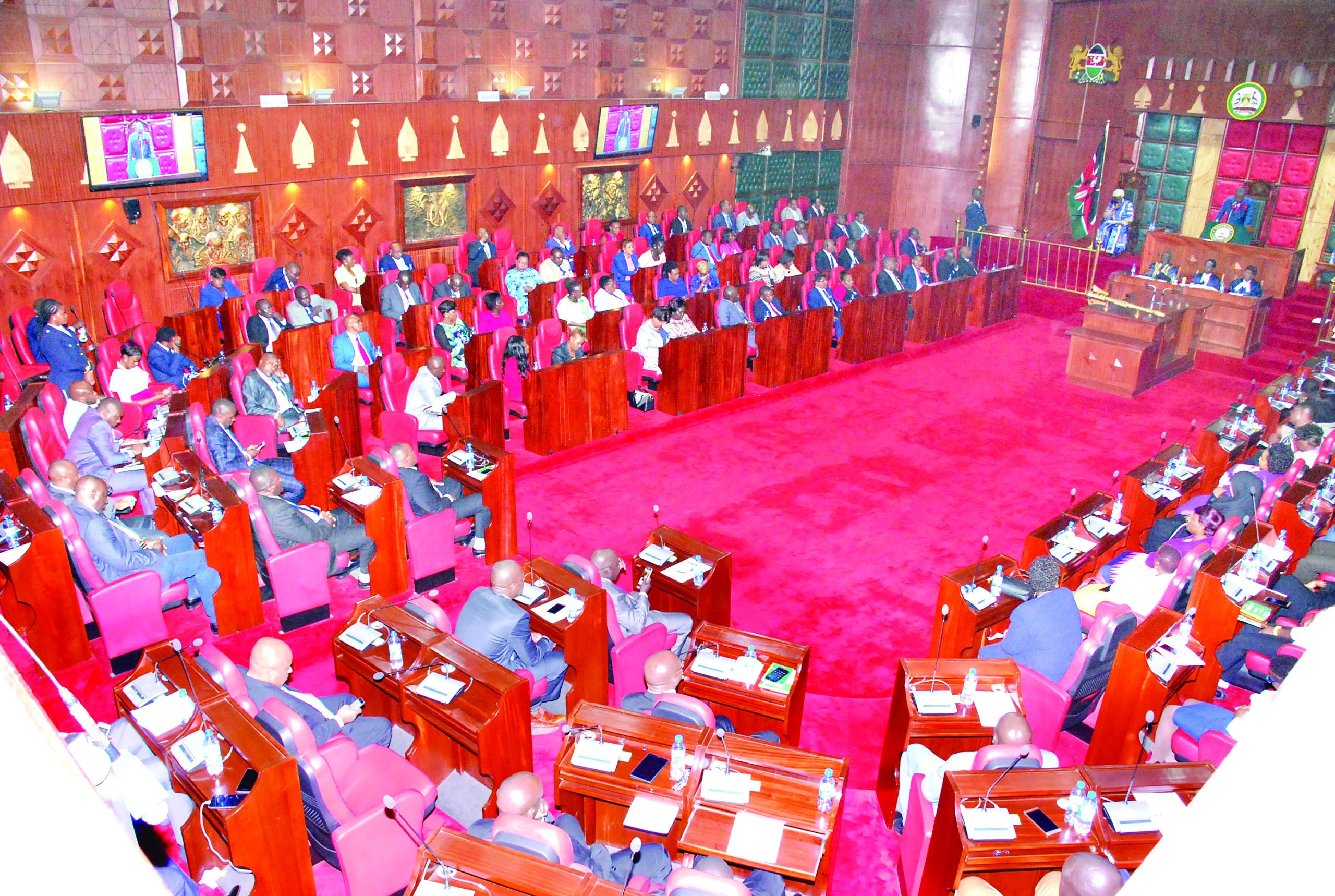Political interests, funding impede MCAs oversight role
By Mercy Mwai, November 11, 2024Political interference, overlapping of functions by the Senate as well as inadequate facilitation and employment of personal staff has made it impossible for Members of the County Assemblies (MCAs) to perform their oversight roles.
In addition, inadequate capacity of county assemblies, inadequate resources to support oversight, lack of independence of the county assembly and weak cooperation and interlinkages in oversight have also been named as factors contributing to poor performance of the ward reps.
A new report dubbed ‘Eye on County Assemblies’ from Mzalendo lobby that oversees both Parliament and counties has raised concerns that the challenges and encumbrances hindering county assembly oversight are systemic and structural, and are sustained by internal and external factors.
Reads the report: “The challenges that county assemblies face relates to internal processes as well as external factors that define the effectiveness of oversight, but whose solution or management lies outside the assembly.
Internal factors relate to issues such as deficiencies in assembly rules while external factors relate to issues such as deficiencies in national frameworks and policies whose control lies with institutions at the national level.
Partisan politics
On political interference, the report raises concerns that partisan politics has often penetrated into oversight and accountability matters, thus affecting effective oversight and accountability.
Most respondents, the report says indicated that in counties where the governor and the majority of county assembly members come from the same party or coalition of parties, party interests tend to override issues of oversight at the county assembly.
Some of the respondents,the report says indicated that there are cases where the technical teams of the assembly analyze and identify issues for follow-up with the executive but these are not followed through due to political reasons and are often blamed on capacity of members and other reasons that camouflage the actual reason.
Audit queries
Reads the report: “Even where the leadership of critical committees such as Public Accounts Committees and Public Investments Committees are chaired by members from the opposition, the committees have majorities from the dominant parties. Legitimate questions regarding expenditure and other audit queries tend to be overlooked by the assemblies and downplayed.”
Apart from party politics, the respondents noted that the county executive, in some cases, has little regard for the role of the assembly, mainly due to the fact that there are no consequences for failing to honor summons or comply with orders of the assembly.
In addition, the report also cited the poor remuneration and conditions of service of MCAs, control of Own Source Revenue (OSR) by the executive, and the dangling of the carrot of the Ward Development Fund, as the points of vulnerability for the county assembly as against the executive.
Reads the report: “The county assembly, as mentioned earlier, lacks means to sanction such behavior from the executive; the use of impeachment and other accountability tools are weakened through politicization and compromise.”
It adds: “The factors above create a culture of impunity in the county executive, which manifests in the form of failure to honor county assembly summons, failure to report regularly to the assembly, and a failure to provide vital information to assist in oversight and accountability in the county assembly, among other means.
In the end, there is a sense of frustration and resignation among members and officials of county assemblies that intend to pursue legitimate oversight in county governance.” On facilitation of MCA and hiring of staff, the report raises concerns that the nature of facilitation that is given to members of county assemblies although differs from one county assembly
